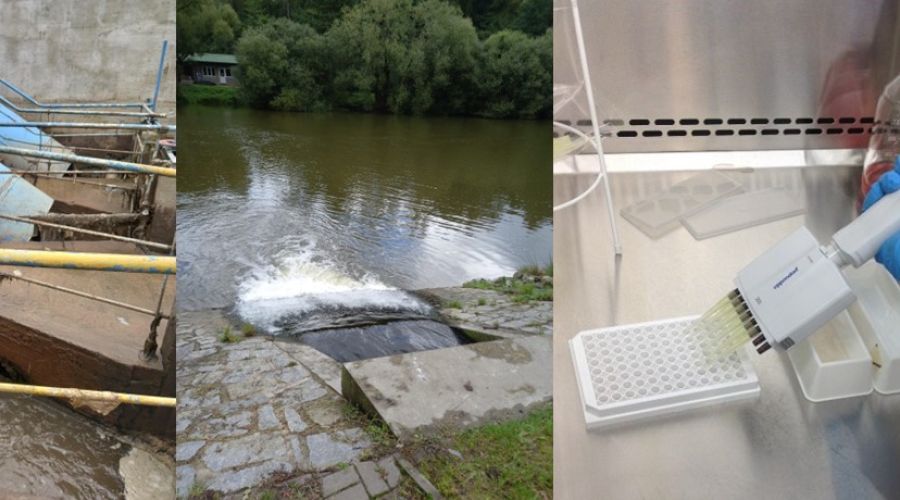Do hormonally active substances present in water affect humans and fish similarly or differently?

In recent decades, new knowledge and evidence have been collected about the negative effects of some substances of anthropogenic origin that enter the environment. These are mainly hormonally active substances that can disrupt the endocrine system of wild animals and humans. These substances have come to be collectively referred to as endocrine disruptors.
In the aquatic environment, most attention has so far been paid to substances with estrogenic effects, which have been shown to be involved in the increased occurrence of hermaphrodite fish or can even cause feminization of males. Relatively recently, it has been shown that some substances interact with progesterone receptors and can thus exhibit progestogenic or anti-progestogenic activity. Progesterone receptors mediate the action of natural gestagens (progestins) in the bodies of all vertebrates. Natural gestagens, such as progesterone, play an essential role especially in reproduction, but they also have other physiological functions. If substances with progestogenic or anti-progestogenic activity enter the aquatic environment, it can be assumed that they will negatively affect the development or fertility of fish that live in the affected localities. Progestogenic and anti-progestogenic activities have already been detected in wastewater and surface water in Europe, including the Czech Republic, in Australia, China and India. These activities were mainly detected using in vitro bioassays with the human progesterone receptor. However, there are quite large differences between the structure of human and fish progesterone receptors. Therefore, we sought to determine to what extent data on progestogenic and anti-progestogenic activities, obtained using in vitro bioassays with the human progesterone receptor, are relevant to fish.
For these purposes, we took samples of wastewaters and receiving surface waters. In these samples, we then measured the (anti-)progestogenic activity in parallel using an in vitro bioassay with the human progesterone receptor and a bioassay with the zebrafish progesterone receptor (which is a model fish species). The analyzes showed that the progesterone receptors of humans and zebrafish are activated or blocked differently by environmental samples. And it is a question whether the blocking or, on the contrary, the activation of the fish progesterone receptor is caused by other substances present in the waters than those to which the human progesterone receptor reacts. In any case, our tests have shown that the results obtained using in vitro bioassays with the human progesterone receptor cannot be used to estimate the potential risk of occurrence of (anti-)progestogenic activity in the aquatic environment for fish.
Kocour Kroupová, H., Grimaldi, M., Šauer, P., Bořík, A., Zálohová, K., Balaguer, P., 2023. Environmental water extracts differentially activate zebrafish and human nuclear progesterone receptors. Science of the Total Environment 859: 160232. doi.org/10.1016/j.scitotenv.2022.160232.
Napsala: Hana Kocour Kroupová
